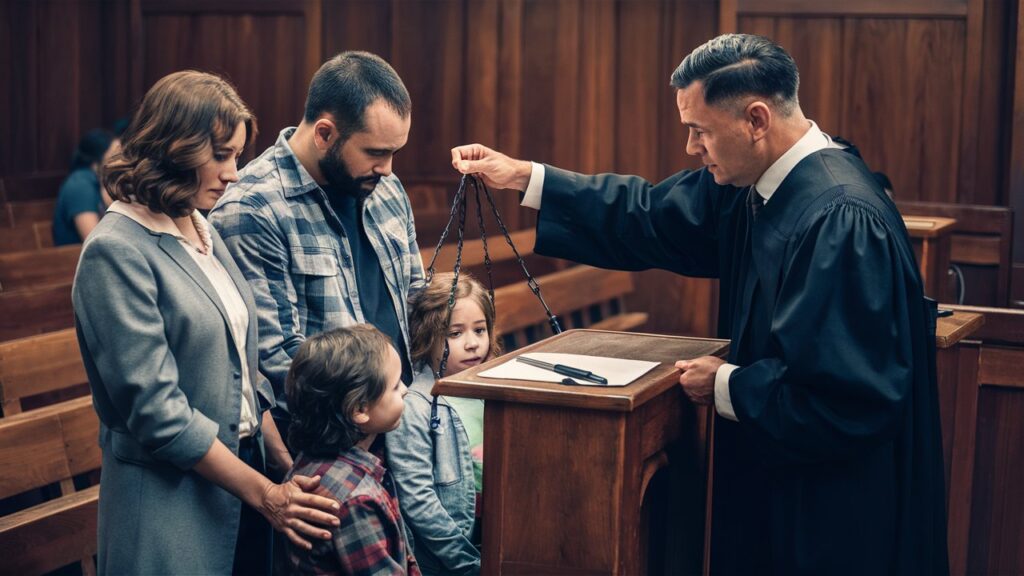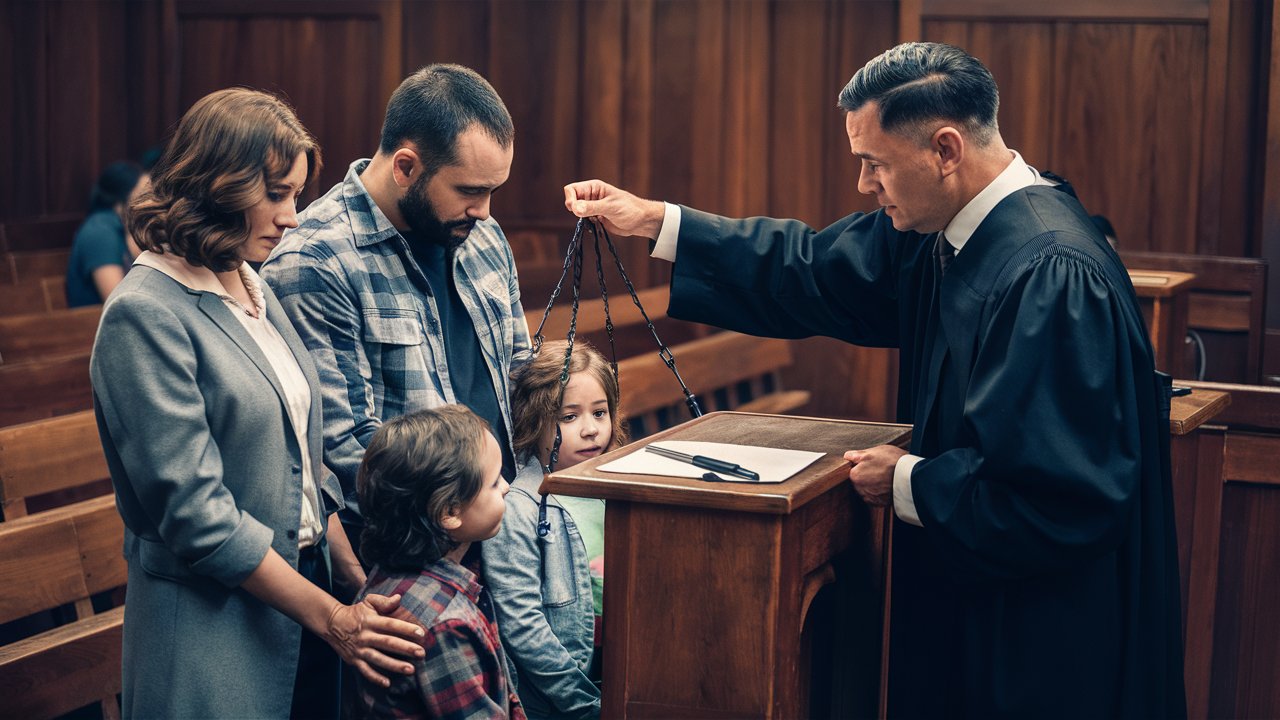
Introduction
When it comes to child guardianship, the lawful framework can be complex and nuanced. Among the different shapes of guardianship courses of action, “de facto guardianship” is a term that regularly surfaces, particularly in cases where the living circumstance of the child doesn’t adjust with formal legitimate understandings. Understanding what de facto care is, how it capacities, and its suggestions in family law is pivotal for anybody exploring guardianship debate or looking for to ensure the best interface of their child.
- What Is De Facto Custody?
1.1. Definition of De Facto Custody
De facto care alludes to a circumstance where an person, ordinarily a parent, has physical guardianship of a child without a formal legitimate arrange giving them guardianship. This implies that the individual has expected the part of the essential caregiver, giving for the child’s day by day needs, in spite of not having official legitimate acknowledgment of this arrangement.
1.2. How De Facto Guardianship Arises
De facto care regularly emerges in circumstances where one parent takes on the caregiving part due to the nonattendance, inadequacy, or disregard of the other parent. It can moreover happen when a non-parent, such as a grandparent or other relative, steps in to care for the child when the organic guardians are incapable or unwilling to do so.
- Legitimate Acknowledgment of De Facto Custody
2.1. Shifting Laws Over Jurisdictions
The acknowledgment of de facto guardianship changes broadly depending on the purview. In a few ranges, courts may recognize de facto care courses of action when making choices approximately formal guardianship orders, whereas in others, such courses of action may not be given critical lawful weight.
2.2. The Part of the Best Interface of the Child
In numerous cases, courts will consider de facto guardianship when deciding what course of action is in the best interface of the child. If a child has been living with a specific caregiver for an expanded period and is flourishing, the court may be slanted to formalize that course of action to give soundness for the child.
- Components Courts Consider in De Facto Guardianship Cases
3.1. Length of the De Facto Custody
One of the key variables that courts consider is how long the de facto guardianship course of action has been in put. The longer a child has been living with a specific caregiver, the more likely a court is to recognize that course of action as being in the child’s best interest.
3.2. The Child’s Well-Being
The in general well-being of the child beneath the current de facto care course of action is another basic figure. Courts will see at whether the child is sound, cheerful, and doing well in school and whether their enthusiastic and physical needs are being met.
3.3. The Relationship Between the Child and Caregiver
The quality of the bond between the child and the caregiver is moreover significant. A near, supporting relationship may lead a court to favor proceeding the de facto guardianship course of action or maybe than disturbing the child’s life by moving them to another caregiver.
- The Handle of Setting up De Facto Custody
4.1. Reporting the Caregiving Role
If you are in a de facto care circumstance and wish to formalize it, recording your part as the essential caregiver is fundamental. This can incorporate keeping records of the child’s restorative arrangements, school exercises, and any budgetary commitments you make towards their upbringing.
4.2. Recording for Legitimate Custody
To pick up lawful acknowledgment of de facto care, the caregiver must regularly record a request with the court for guardianship. This handle may include demonstrating that the existing guardianship course of action is in the best intrigued of the child and that the caregiver has been satisfying the parental part effectively.
4.3. Court Hearings and Evaluations
During the lawful prepare, the court may hold hearings to assess the child’s living circumstance and may arrange assessments by social specialists or clinicians. These assessments offer assistance the court decide whether the de facto guardianship course of action ought to be formalized.
- Challenges in De Facto Guardianship Cases
5.1. Debate with Natural Parents
One of the most critical challenges in de facto guardianship cases is debate with the natural guardians. If the natural parent challenges the de facto care, the case can gotten to be more complicated, as the court must weigh the rights of the organic guardians against the best interface of the child.
5.2. Need of Lawful Standing
In a few purviews, de facto overseers may confront challenges due to a need of lawful standing. Without a formal lawful relationship to the child, it can be more troublesome to state guardianship rights in court, particularly if the natural guardians are still lawfully recognized as the essential custodians.
5.3. Passionate Affect on the Child
Custody debate, particularly those including de facto care, can have a noteworthy enthusiastic affect on the child. The instability and potential changes in their living circumstance can cause push and uneasiness, making it basic for the court to handle such cases with sensitivity.
- The Significance of Lawful Exhortation in De Facto Care Cases
6.1. Counseling with a Family Law Attorney
Given the complexities of de facto guardianship cases, it is vital to counsel with a family law lawyer who has involvement in guardianship things. An lawyer can give direction on how to record your part as a caregiver, record the essential lawful printed material, and speak to your interface in court.
6.2. Understanding Your Rights and Responsibilities
A learned lawyer can too offer assistance you get it your rights and duties as a de facto overseer. This incorporates what steps you can take to reinforce your case and secure the child’s best interface all through the lawful process.
- Real-Life Cases of De Facto Custody
7.1. Grandparents as De Facto Custodians
One common illustration of de facto guardianship includes grandparents venturing in to care for their grandchildren. This frequently happens when the guardians are incapable to care for the child due to issues like substance mishandle, imprisonment, or passing. In numerous cases, courts recognize the grandparents’ part and may allow them formal custody.
7.2. Stepparents and De Facto Custody
Another situation includes stepparents who have taken on a parental part in the child’s life. If the organic parent is missing or unfit of caring for the child, the stepparent may look for to formalize their de facto guardianship course of action, particularly if they have been the essential caregiver for an expanded period.
- The Future of De Facto Care in Family Law
8.1. Developing Acknowledgment of De Facto Custody
As family structures proceed to advance, there is developing acknowledgment of de facto guardianship in numerous lawful frameworks. Courts are progressively recognizing the significance of steadiness and coherence in a child’s life, which can lead to more de facto overseers being allowed formal guardianship rights.
8.2. Administrative Changes
In a few locales, there have been authoritative changes pointed at superior recognizing and ensuring the rights of de facto overseers. These changes reflect a broader understanding that the best interface of the child ought to be the essential thought in guardianship choices, in any case of formal lawful relationships.
Conclusion
De facto guardianship is a imperative concept in family law, especially in cases where the conventional lawful guardianship course of action does not reflect the child’s living circumstance. For those who discover themselves in a de facto custodial part, understanding the lawful scene and taking proactive steps to formalize care can make a critical distinction in the child’s life. Whereas the handle can be challenging, particularly in debate with natural guardians, the essential center ought to continuously stay on what is best for the child. By looking for legitimate counsel and carefully reporting your part as a caregiver, you can offer assistance guarantee that the child’s needs are met and their future is secure.



